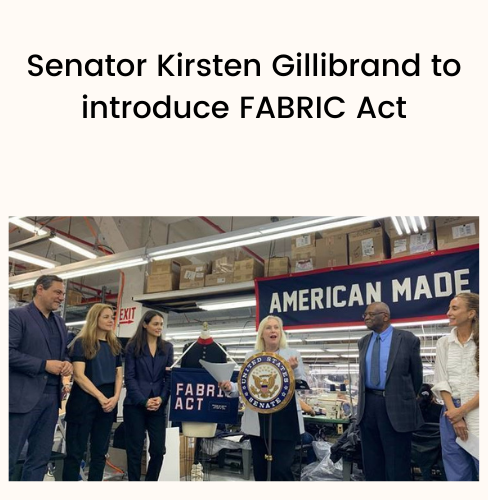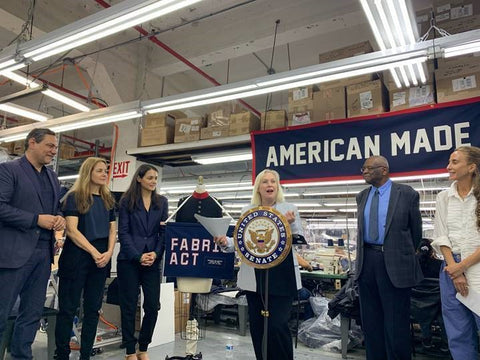US Senator Kirsten Gillibrand introduces the first federal law to eliminate the existing exploitative payment systems of the garment industry. The FABRIC ACT will hold fashion companies accountable for their labor practices.
In light of workers' rights violations, Senator Kirsten Gillibrand's "Fashioning Accountability and Building Real Institutional Change Act" bill, introduced on May 12, 2022, aims to liberalize the current piece-rate pay structure for the employees in the garment industry. A proposal for the amendment of the Fair Labor Standards Act of 1938.
A large percentage of fast fashion brands engage in unethical labor practices to produce a massive amount of clothing at a low cost. Around 75 million people are employed in the fast fashion industry worldwide. Textile workers work up to 16 hours per day, seven days a week. Child labor is also a prominent practice— exploiting children of a fairly young age. Meanwhile, the poor working conditions endanger the health of employees. The highly toxic chemicals used in the creation of fast fashion garments have been linked to several diseases, and manufacturing workers are exposed to and inhale them daily.
Fast fashion is about creating trendy cheap clothes at the lowest price possible.
This trend, however, leaves the workers behind. Garment workers face low wages, deplorable work environments, and harassment. Fast fashion firms and retail behemoths are notorious for underpaying people and creating hazardous working situations. Prioritizing lower production costs to maximize profit levels and meet consumer demands, while leaving the workers with poor wages and dreadful working environments. A large number of fast fashion is produced in countries with lax labor standards and little regard for human rights. Even in the United States, many textile factories still operate under sweatshop and sweatshop-like conditions where workers' rights are being violated.
The FABRIC Act aims to uplift nearly 100,000 domestic textile workers while also helping to revitalize the industry. Manufacturers and contractors in the garment industry will have to register with the Department of Labor. The act proposes to implement changes by introducing effective liability metrics- presenting records and documents, practicing transparency, supporting reshoring, and facilitating textile manufacturing fundings that contribute to reshaping the industry.
Senators Bernie Sanders, Cory Booker, and Elizabeth Warren are among the bill's original sponsors. Other labor organizations, fashion brands, and manufacturers that have endorsed the FABRIC Act include the UNITE HERE, AFL-CIO, and Workers United.
Related blogs:
What Are the Environmental Impacts of Fast Fashion?
Why Does the Fashion Industry Need to be More Sustainable?
15 Sustainability Magazines To Read in 2022






